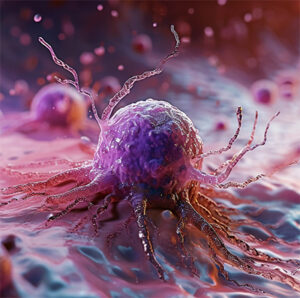Breast cancer is one of the most common cancers among women in the United States, with about 1 in 8 women developing invasive breast cancer over their lifetime. As breast cancer incidence has increased over the past several decades, advances in screening, diagnosis, and treatment have also greatly improved. Breast cancer death rates have fallen by about 40% from 1989 to 2017, largely due to improvements in early detection and more effective therapies.

With better screening and care, the number of breast cancer survivors continues to grow. There are an estimated 3.8 million breast cancer survivors in the U.S. today. The large population of survivors means ongoing surveillance and care for possible recurrence or long-term effects is critically important.
Medical billing and coding plays a central role in the infrastructure of breast cancer care, diagnosis, treatment and research. Accurate coding facilitates appropriate reimbursement for providers, while also supplying data to cancer registries that monitor incidence patterns, treatment trends and outcomes.
This is an overview of the most common CPT codes used throughout the spectrum of breast cancer diagnosis, treatment, and follow-up care.
Diagnostic CPT Codes
Breast Cancer Screening
Several screening tools may be used to detect breast cancer in asymptomatic patients.
Common CPT codes for breast cancer screening include:
- 77067: Screening mammography, bilateral
- G0202: Screening mammography, producing direct 2-view digital image, bilateral
If a screening test comes back abnormal and leads to further diagnostic workup, the screening code 77067 or G0202 may still be used, along with the additional diagnostic codes.
Diagnostic Mammography
Diagnostic mammography is performed when an abnormal clinical breast exam, symptom, or screening mammogram requires further evaluation.
Common CPT codes include:
- 77065: Diagnostic mammography, unilateral
- 77066: Diagnostic mammography, bilateral
Unilateral vs. bilateral codes are used based on whether one breast or both require imaging.
Add-on codes may apply if special views are obtained:
- +77061: Digital breast tomosynthesis, unilateral
- +77062: Digital breast tomosynthesis, bilateral
Breast Ultrasound
Breast ultrasound is often used as an additional imaging modality along with mammography.
CPT codes include:
- 76641: Ultrasound, breast, unilateral
- 76642: Ultrasound, breast, bilateral
MRI of the Breast
Breast MRI may be used for high-risk screening, staging, or monitoring treatment response.
CPT codes include:
- 77049: MRI of breast, without and/or with contrast
- C8903-C8908: Breast MRI with computer-aided detection (CAD)
Needle Biopsies
Needle biopsies are performed to extract cells or tissue from a suspicious breast lesion for pathological examination.
Common CPT codes include:
- 19100: Breast biopsy, percutaneous; superficial
- 19101: Breast biopsy, percutaneous; deep
- 19102: Breast biopsy, percutaneous; deep, with image guidance
- 19103: Breast biopsy, percutaneous; deep, with image guidance, vacuum-assisted
Breast Specimen Radiography
When a breast biopsy or lumpectomy is performed, radiographs of the excised specimen may be obtained to confirm removal of the targeted lesions.
CPT code:
- 77055: Mammary ductogram or galactogram
Pathology
Pathology services are crucial for analyzing biopsy and surgical specimens to determine characteristics of malignant cells present.
Common CPT codes for breast pathology include:
- 88304-88309: Surgical pathology, gross and microscopic examination
- 88312: Special stains for microorganisms, tissue
- 88313: Special stains not for microorganisms
- 88342: Immunohistochemistry (including tissue immunoprecipitation), per specimen
- 88358: Morphometric analysis; tumor
- 88400-88401: In situ hybridization
Tumor Marker Testing
Biomarker testing helps determine prognosis and guide breast cancer treatment.
CPT codes include:
- 81518: Oncology, breast, mRNA gene expression profiling by hybrid capture
- 81519: Oncology, breast, mRNA analysis of 58 genes using hybrid capture
- 81520: Oncology, breast, mRNA analysis of 70 genes using hybrid capture
Surgical CPT Codes
Breast-Conserving Surgery
For early stage breast cancers, breast-conserving surgery is commonly performed to remove the tumor while preserving the breast.
CPT codes include:
- 19120: Excision of cyst, fibroadenoma or other benign or malignant tumor, aberrant breast tissue, duct lesion, nipple or areolar lesion, open, male or female, 1 or more lesions
- 19125: Excision of breast lesion identified by preoperative placement of radiological marker, open; single lesion
- 19126: Excision of breast lesion identified by preoperative placement of radiological marker, open; each additional lesion separately identified by a preoperative radiological marker
Note that code 19120 is used for the first lesion when marker placement has not been performed. Codes 19125 and 19126 are used when lesions are localized using preoperative marker placement.
Mastectomy Procedures
For more advanced breast cancers, a mastectomy may be required.
Common CPT codes include:
- 19300: Mastectomy, partial
- 19302: Mastectomy, partial, with axillary lymphadenectomy
- 19303: Mastectomy, simple, complete
- 19304: Mastectomy, subcutaneous
- 19307: Mastectomy, radical, including breast, pectoral muscles, axillary lymph nodes
- 19316: Suspension of arm during mastectomy surgery (additional code with mastectomy)
Breast Reconstruction
Breast reconstruction may be performed at the same time as a mastectomy or be done later as a second procedure.
Reconstruction CPT codes include:
- 19340: Insertion of breast implant on same day of mastectomy (immediate reconstruction)
- 19342: Delayed insertion of breast implant following mastectomy
- 19357: Breast reconstruction; tissue expander placement
- 19361: Breast reconstruction with latissimus dorsi flap
- 19364: Breast reconstruction with free flap (microsurgical technique)
- 19366: Breast reconstruction with other technique
Lymph Node Procedures
Axillary node dissection or sentinel lymph node biopsy is frequently performed to stage breast cancer.
CPT codes include:
- 38500: Biopsy of axillary lymph node
- 38525: Lymph node biopsy, excisional
- 38740: Lymphadenectomy, regional, of axillary lymph nodes, including axillary contents (dissection of lymph nodes)
- 38746: Lymphadenectomy, internal mammary
- 38500: Biopsy or excision of lymph node, open; deep axillary node
Radiation Therapy
Radiation is commonly used after breast-conserving surgery to lower recurrence risk. It may also be used after mastectomy for high-risk cancers.
CPT codes for external beam radiation therapy include:
- 77261: Therapeutic radiology treatment planning
- 77413: IMRT delivery, breasts or chest wall
- 77414: 3-dimensional conformal radiotherapy delivery
- 77427: Radiation treatment delivery, single treatment area
For accelerated whole breast radiation, CPT code 77425 may be used. Brachytherapy using internal radiation sources may also be performed, using codes such as 77770, 77771 and 77778.
Chemotherapy
Chemotherapy is commonly administered before or after breast cancer surgery. It may be given intravenously or by mouth.
Chemotherapy CPT codes include:
- 96409: Chemotherapy administration, intravenous, push technique
- 96411: Chemotherapy administration, intravenous, infusion technique
- 96413: Chemotherapy administration, intravenous, prolonged infusion technique
- 96415: Chemotherapy administration, intravenous, each additional sequential infusion
- 96417: Chemotherapy administration complex regimen, intravenous
Chemotherapy drug codes are specific to the agents administered (eg. J9000 for doxorubicin, J9355 for trastuzumab).
Hormone Therapy
Hormone therapy is used in estrogen receptor-positive breast cancers. It may be given after surgery to reduce recurrence risk.
CPT codes include:
- J9395: Injection, fulvestrant
Oral hormone therapy agents are billed using the appropriate drug codes, such as J7505 for anastrozole.
Follow-Up Care
Breast cancer patients require regular follow-up visits and surveillance testing to monitor for recurrence.
Follow-up care CPT codes include:
- 99211-99215: Office or outpatient visit codes
- 77055 or 77061-77062: Mammogram for breast cancer follow-up
Testing to monitor or detect recurrence:
- 81503: Oncology, breast tumor markers CA 15-3/CA27.29
- 84153: Prostate specific antigen (PSA)
- 84154: Prostate specific antigen (PSA); free
- G0328: Colorectal cancer screening, immunoassay, fecal occult blood
Summary: CPT Codes Used in Breast Cancer Treatment Billing
A wide range of CPT codes are used in breast cancer billing to accurately capture the details of screening, diagnosis, surgical and medical treatments, and follow-up care. Proper code selection requires an in-depth understanding of medical terminology, breast cancer care, and coding guidelines. Clinical coders specialized in oncology play a vital role in cancer care infrastructure through their documentation and translation of complex breast cancer cases into standardized codes.
With breast cancer remaining a major public health issue, access to quality screening, timely diagnosis, and expert care is essential. Complete and accurate coding helps drive fair provider reimbursement for services, while also supplying data to registries monitoring population patterns. As breast cancer care continues to advance, clinical coders will remain integral to optimizing patient care and outcomes through their expertise in breast cancer billing and CPT code selection.

